Unlock Every Learner’s Potential from Day One.
Cognassist’s digital assessment is 99% more cost-effective than formal diagnostics, enabling organisations to implement large-scale cognitive screening at a fraction of the expected cost.
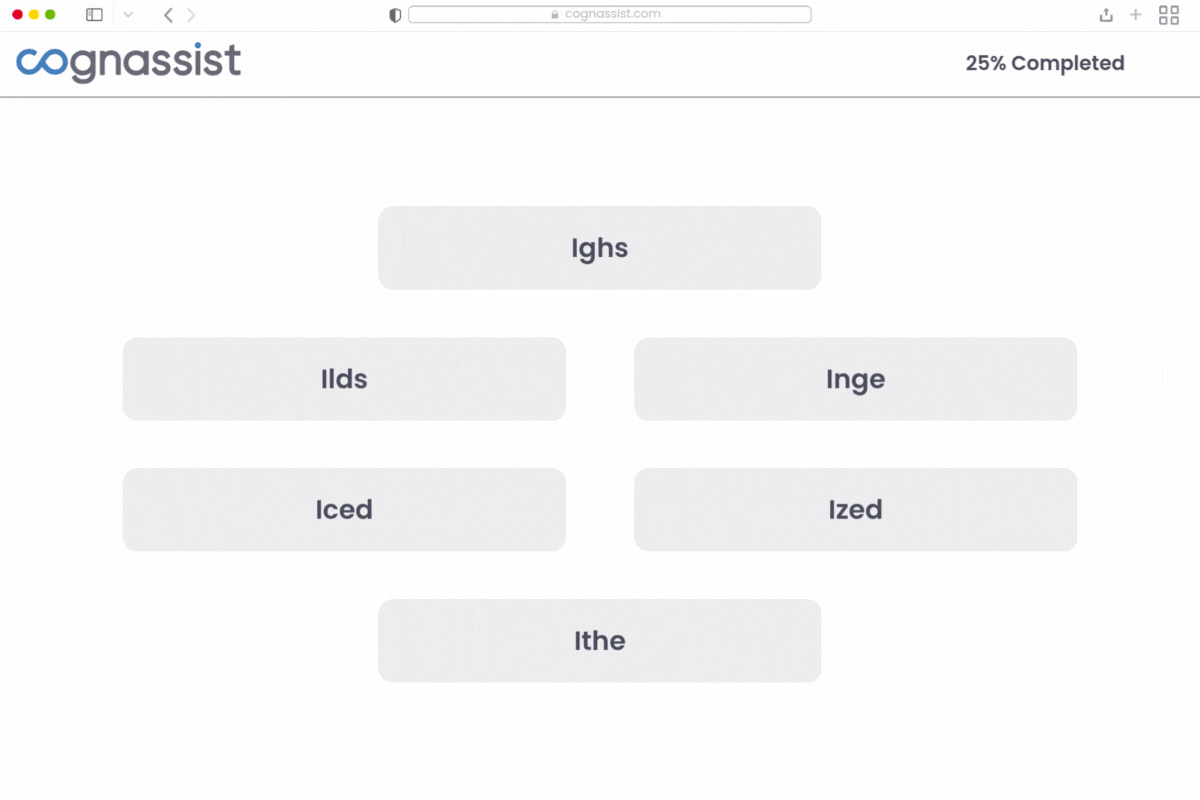
The Cognassist assessment is an all-in-one cognition measurement, reporting and evidencing tool. Designed by neuropsychologists and educational practitioners, it is the only assessment to output a clinical standardised report for educators and authorities, as well as a consumer-friendly report for learners and employees.
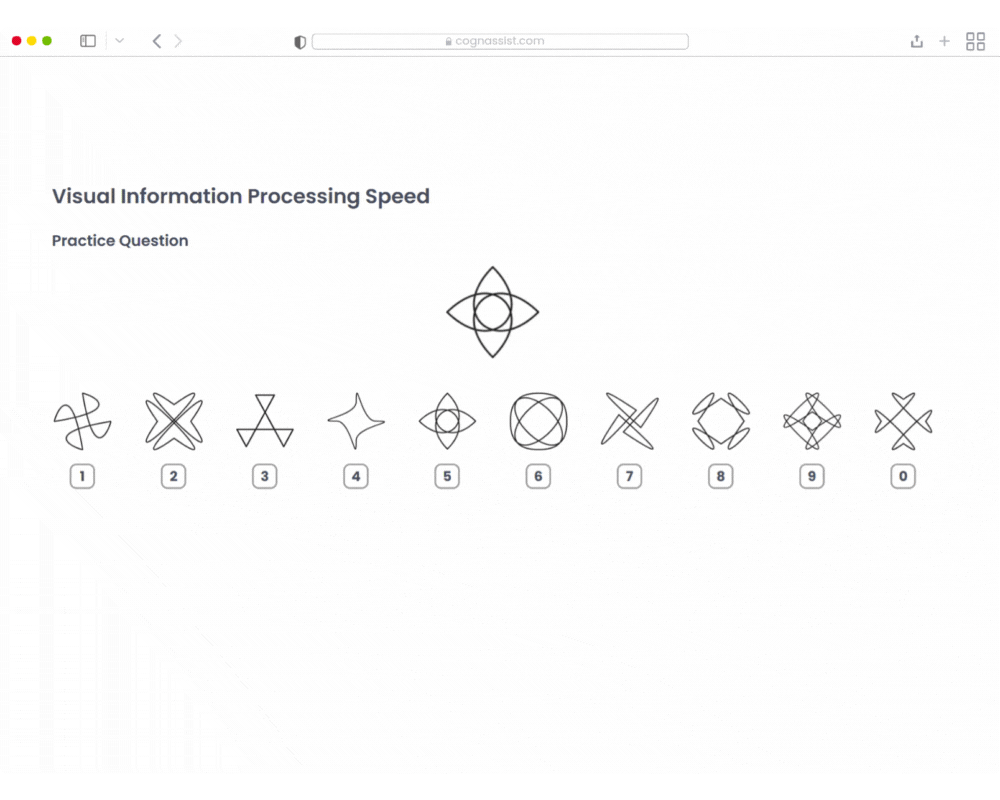
Auto flags and creates evidence packs for any identified needs.
Seamlessly integrate into your existing workflow. The assessment can be completed alone or with a SENCO in approximately 30minutes.
A JCQ (Joint Council for Qualifications) compliant digital cognitive assessment tool that includes integrity monitoring.
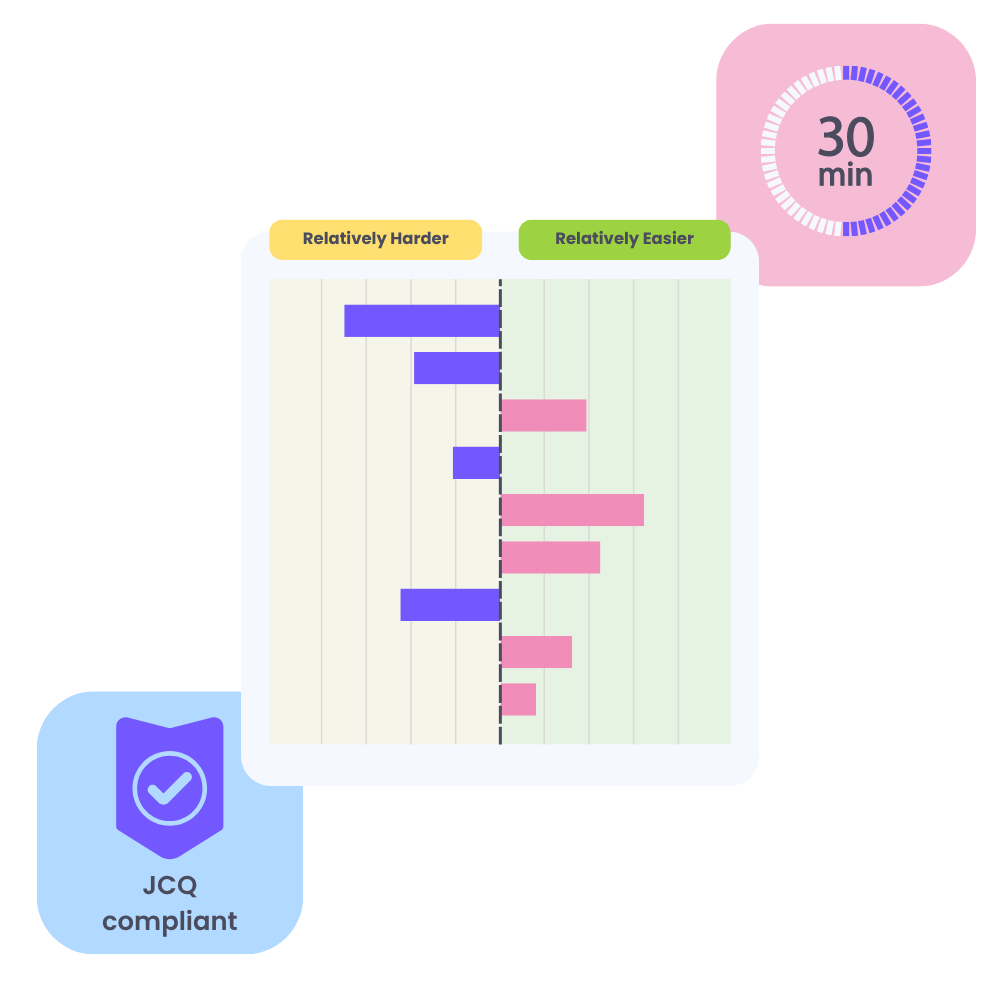
Case study
Bradford College collaborated with Cognassist to identify and support neurodiverse learners, resulting in improved engagement and achievement rates.
Key outcomes
learners assessed
LDD learner success rate
increase in learner attainment
Cognassist delivers a clinical, standardised report measuring nine cognitive domains and three indexes for thinking, learning, and speed of working. Reports:
Identify strengths, challenges, and learning needs
Provide evidence for adjustments and funding claims
Offer psychologist-level insights for educators and occupational psychologists
Generated instantly as a secure PDF, these reports are accepted by most public and tertiary authorities, enabling quick, confident support decisions.
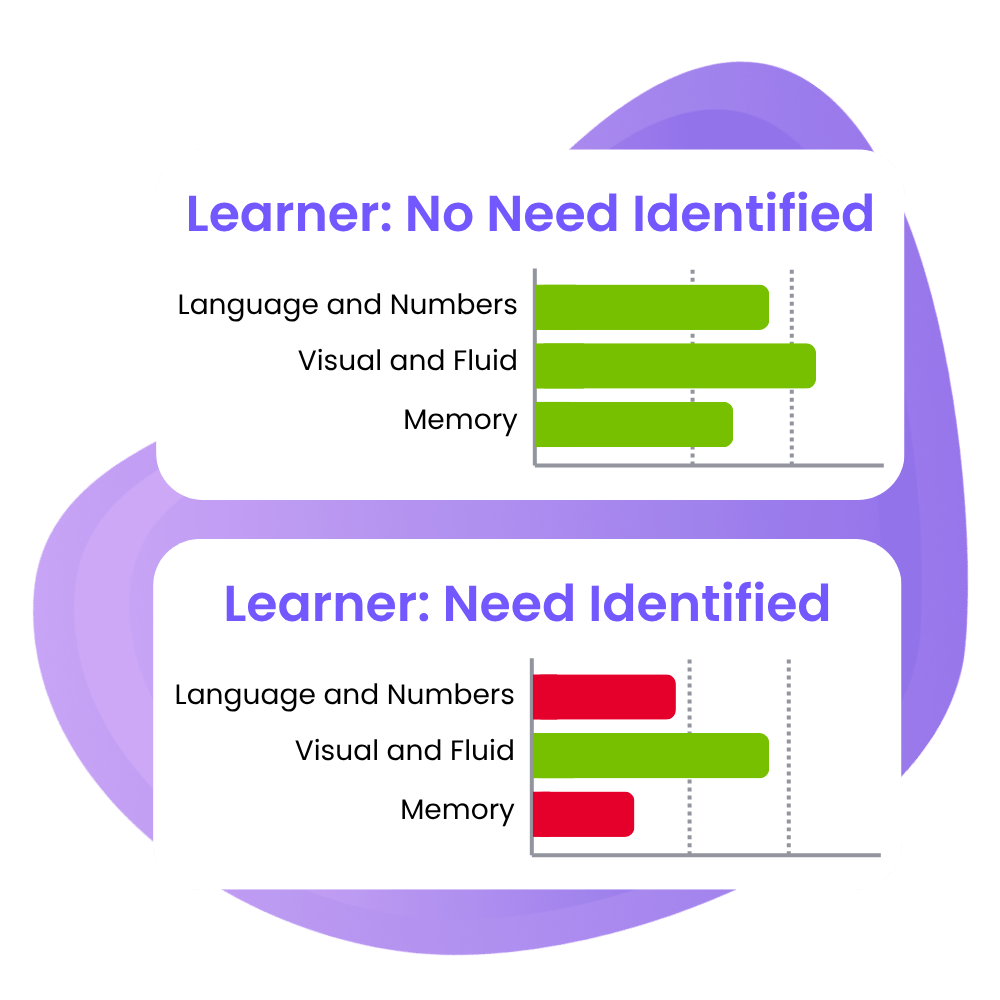
Cognassist’s consumer-friendly report translates assessment results into an engaging, positive, and easy-to-understand format without using standardised scores. It helps individuals:
Recognise cognitive strengths and areas that may need support
Explore techniques to optimise performance and overcome barriers
Understand how cognition impacts learning, work, and daily life
Accessible online, the report supports collaborative strategy planning with learners or employees and encourages self-reflection through Kai, our AI-enabled chat. It offers a safe, motivational, and cost-effective way to discover cognition and unlock personalised strategies for success.
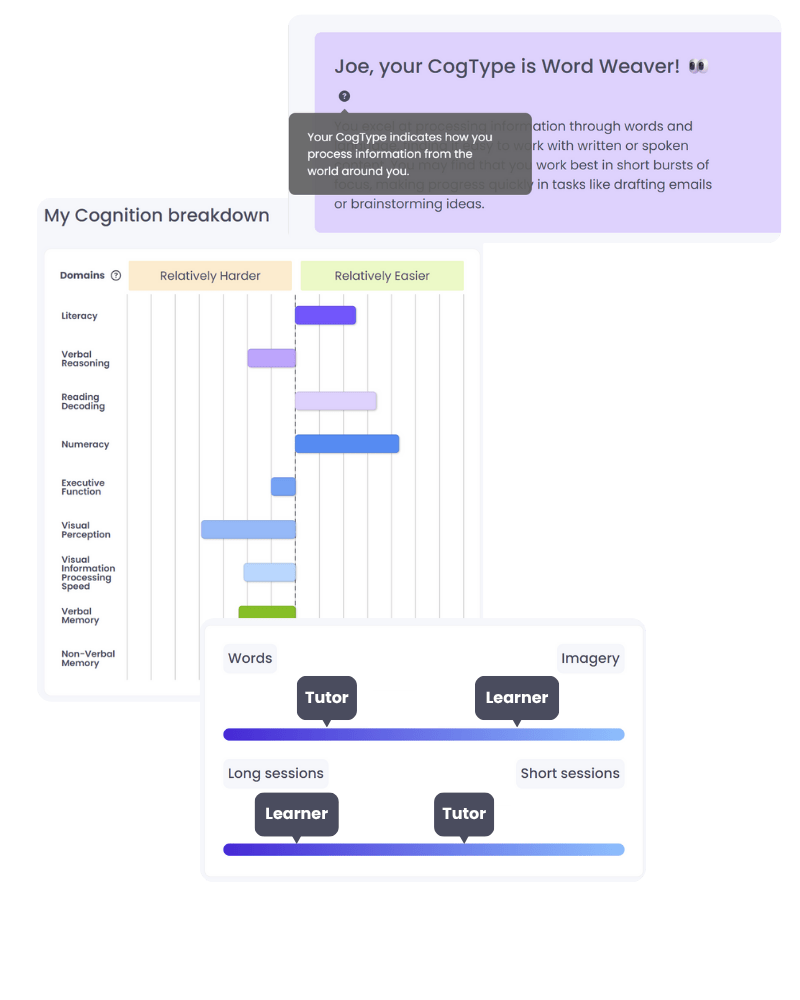



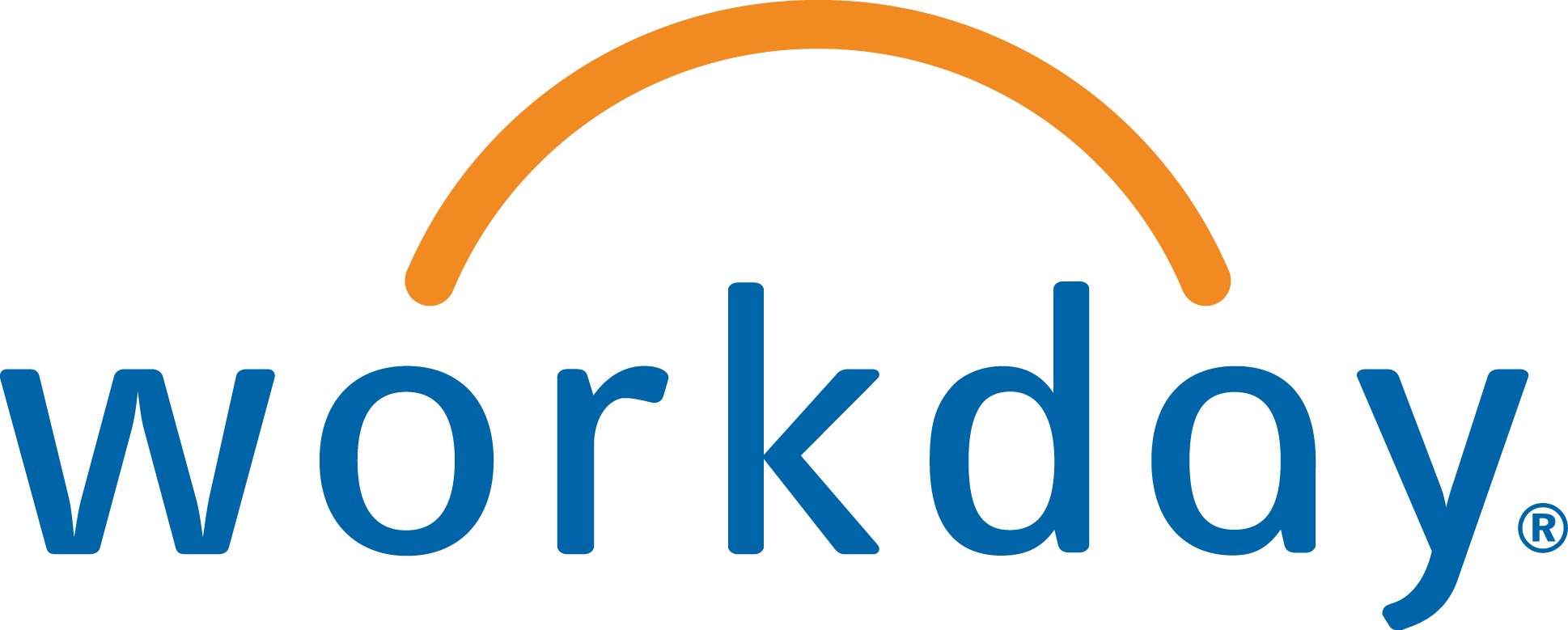
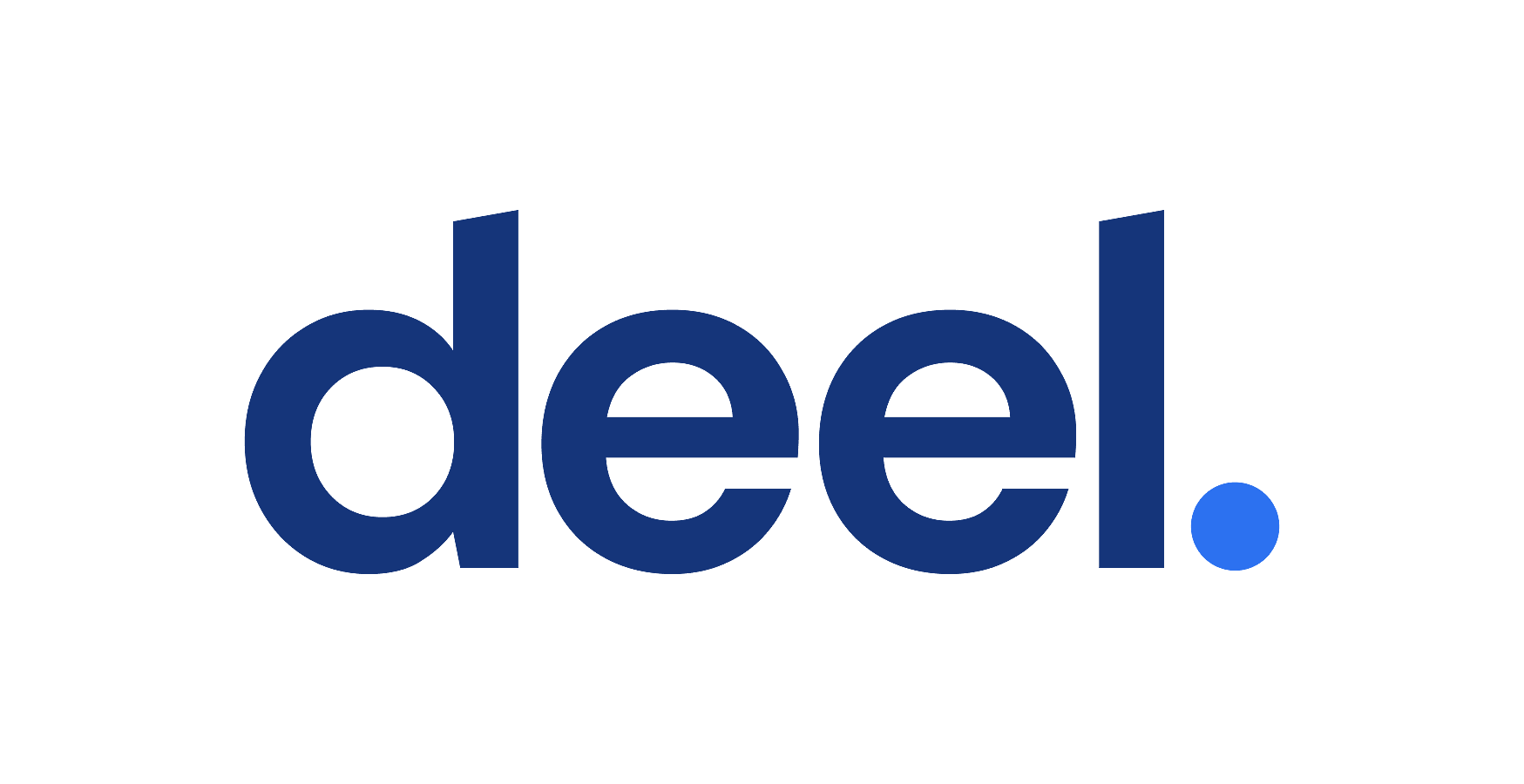

View, search, and download reports. Fine tune your search with filters for specific criteria. It’s all one click away and allows tutors to do more with less time.
Cognassist is ISO 27001 compliant and audited annually against these standards.
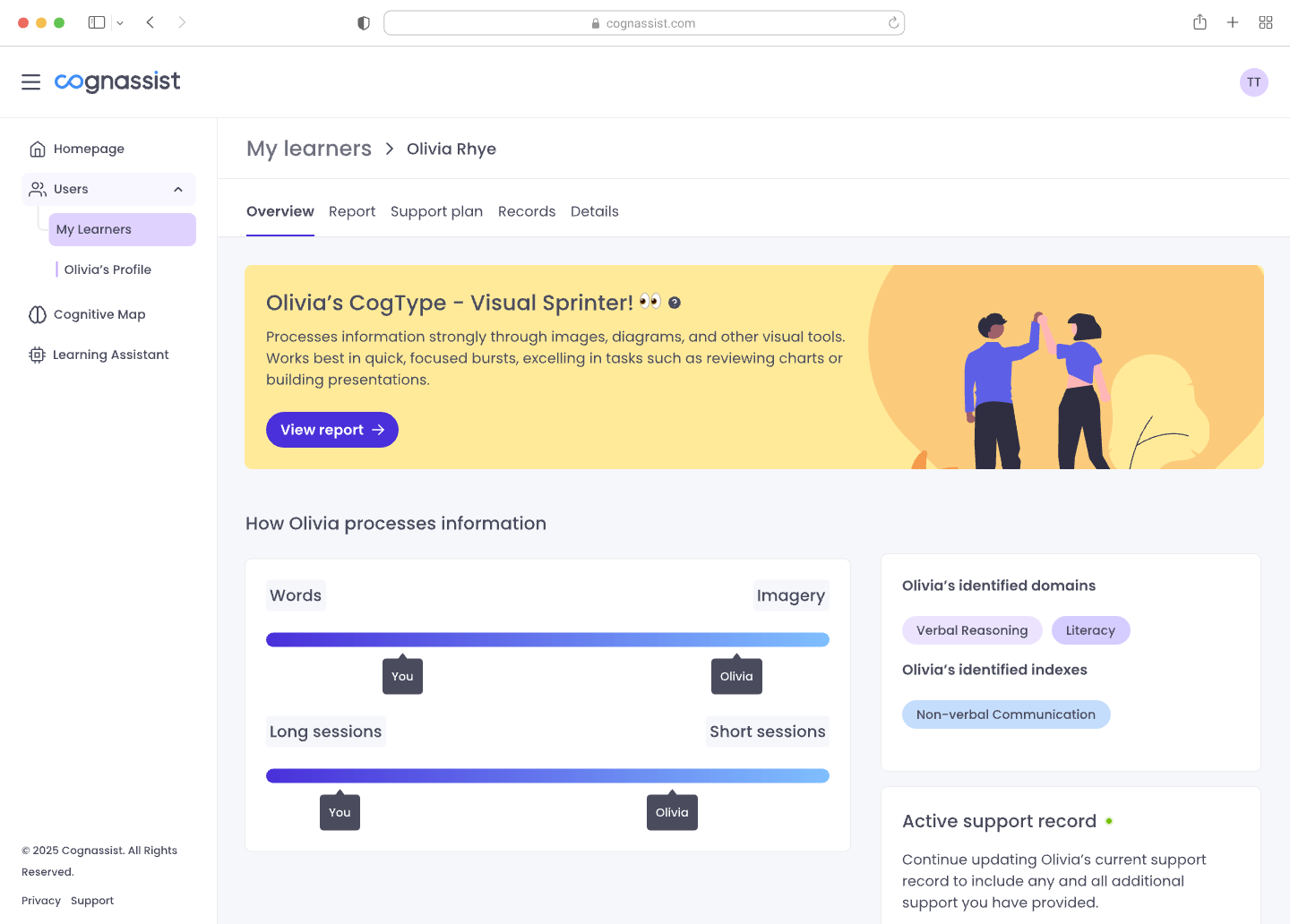
Cognassist’s cognitive assessment does not diagnose neuro-differences (e.g., dyslexia, autism, ADHD) and does not provide risk profiles for these labels.
Cognassist reports focus on how best to support and enable the individual to achieve their goals, whilst building evidence packs to support funding claims, exam adjustment applications, or reasonable adjustment plans.
However, due to robust scientific validity, our Clinical Reports can be used by qualified professionals as part of their assessment decision when providing a diagnosis.
After a monitoring visit, Educationwise put everything into creating the best learner experience and received Ofsted Outstanding on their first full visit.
See full story
These insights enabled personalised learning strategies, improving learner outcomes and tutor efficiency.
Stephanie Taylor
Learning Support, Safeguarding and Inclusion Manager, Hawk Training
Since adopting Cognassist, we have experienced transformative results. We can now identify learners who need additional support from day one, allowing for timely interventions and personalised learning experiences.
Our learners report feeling more understood and supported, and our tutors are better equipped to provide targeted assistance.
Nicola Clark
Head of Learning Support, Train Together
Cognassist is one of only a handful of digital cognitive assessments globally to be validated to the most rigorous scientific standards. Each trial involves a team of independent chartered psychologists working alongside our own team of internal psychologists. Each validity study is individually designed, recruited for and then independently audited throughout the study, this process is repeated until the study is proven to evidence the validity of the task.
Each of our 9 tasks have been separately validated. During each study we selectively recruit over 300 paid participants to complete our task and at least one proven paper-based test of the same area of cognition. These participants complete these tests in laboratory conditions whilst being independently adjudicated by a team of qualified psychologists. The study process is designed, monitored and reviewed by the team of independent psychologists.
This process is comprehensive and costly which is why Cognassist is one of only a handful of digital cognitive assessments globally to be approved by the most rigorous standard setting authorities.
Yes. Cognassist has been included in the 7th Edition of ‘Assessing the Need for Access Arrangements in Examinations’ as a recognised JCQ compliant assessment
Yes. Cognassist satisfies all of the requirements of Ofqual for evidencing access arrangements for cognitive adjustments.
Cognassist is used and has normative data for accurate standardised scores in the UK, USA, Australia and New Zealand.
It is also used in the following countries but does not have normalised data for these regions: Sweden, Finland, Norway, Holland, Denmark, Belgium, Iceland, South Africa, and Canada.